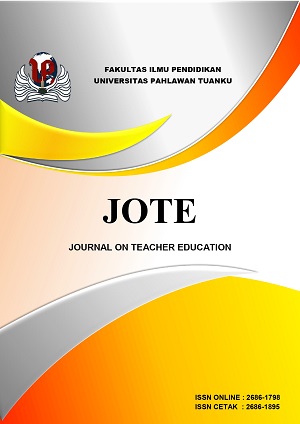Peningkatan Literasi Ekonomi Syariah Masyarakat melalui Sosialisasi Akad Salam pada Transaksi Online
Abstract
Keywords
Full Text:
PDFReferences
Alim, M. N., Supriadi, Marasabessy, R. H., & Solihin, R. (2022). Literasi Peran Fintech dan Bisnis Digital Syariah Untuk Penguatan Ekonomi Umat. I-Com: Indonesian Community Journal, 2(2), 79–88. https://doi.org/10.33379/icom.v2i2.1296
Bahtiar, B., Diantama, S., & Arlovin, T. (2025). Transformation Of Sharia Business Management Governance In The Digital Era. Jurnal Fokus Manajemen, 5(3), 635–644.
Dharma, B. (2024). Pemberdayaan Usaha Mikro Perempuan: Peran Kunci Literasi Risiko Berbasis Syariah. AT-TAWASSUTH: Jurnal Ekonomi Islam, 9(1), 115–128. https://doi.org/10.30829/ajei.v9i1.20248
Hayati, M. (2024). Tinjauan Ekonomi Islam Terhadap Praktik Gharar Dalam Jual Beli Pakaian Bekas Karungan (Studi Di Pasar Terong Makassar). Juremi: Jurnal Riset Ekonomi, 3(5), 555–568. https://doi.org/10.53625/juremi.v3i5.7564
Manik, M. R. E., Asmuni, A., & Anggraini, T. (2023). Strategic Management of Akad Salam and Istishna in e-Commerce Transactions: A Case Study of Unit-business Pesantren. Idarah (Jurnal Pendidikan Dan Kependidikan), 7(1), 35–52. https://doi.org/10.47766/idarah.v7i1.458
Manzilati, A., & Wildana, M. D. A. (2024). Peningkatan Literasi Keuangan Syariah dalam Rangka Peningkatan Kesejahteraan Masyarakat di Kecamatan Singosari. Jurnal Pengabdian kepada Masyarakat Nusantara, 6(1.1), 431–437.
Nafiyah, I., Maulidya, A., Rosyada, N., Putri, E. K., Lestari, E., & Adinugraha, H. H. (2023). Meningkatan Literasi Keuangan Pada Masyarakat Desa Kebanggan Kecamatan Moga Melalui Program Literasi Bank Syariah. Welfare : Jurnal Pengabdian Masyarakat, 1(3), 508–512. https://doi.org/10.30762/welfare.v1i3.648
Pitriani, A., Abdurrahman, H., Brawijaya, A., & Prasetyo, T. (2023). Sosialisasi Ekonomi Syariah Sebagai Solusi Dari Celah Pengetahuan Tentang Ekonomi Bagi Masyarakat Desa Tugu Jaya. ALMUJTAMAE: Jurnal Pengabdian Masyarakat, 3(3), 290–294. https://doi.org/10.30997/almujtamae.v3i3.6635
Purnamasari, D. N. I., Siswoyo, S., Supriyanto, S., & Cahyati, Y. (2025). Penguatan Literasi Ekonomi Syariah Masyarakat melalui Pendampingan di BMT Terate Jaya Palang. Jurnal Pengabdian Masyarakat Bangsa, 3(7), 3406–3413. https://doi.org/10.59837/jpmba.v3i7.2996
Rasha, N., & Suwar, A. (2025). Konsep Etika Bisnis Islam dalam Penguatan UMKM: Relevansi, Tantangan, dan Model Implementasi. AL-UKHWAH - Jurnal Pengembangan Masyarakat Islam, 96–113. https://doi.org/10.47498/jau.v4i1.5883
Rofiullah, A. H. (2025). Pengembangan Ekonomi Syariah dalam Perspektif Maqashid Syariah di Era Ekonomi Digital. SAUJANA: Jurnal Perbankan Syariah dan Ekonomi Syariah, 7(2), 24–43.
Widiana, W., & Annisa, A. A. (2017). Menilik Urgensi Penerapan Pembiayaan Akad Salam pada Bidang Pertanian di Lembaga Keuangan Syariah di Indonesia. Muqtasid: Jurnal Ekonomi dan Perbankan Syariah, 8(2), 88–101. https://doi.org/10.18326/muqtasid.v8i2.88-101
DOI: https://doi.org/10.31004/abdira.v5i3.1181
Refbacks
- There are currently no refbacks.
Copyright (c) 2025 Yusuf Yusuf

This work is licensed under a Creative Commons Attribution-ShareAlike 4.0 International License.





1.png)
